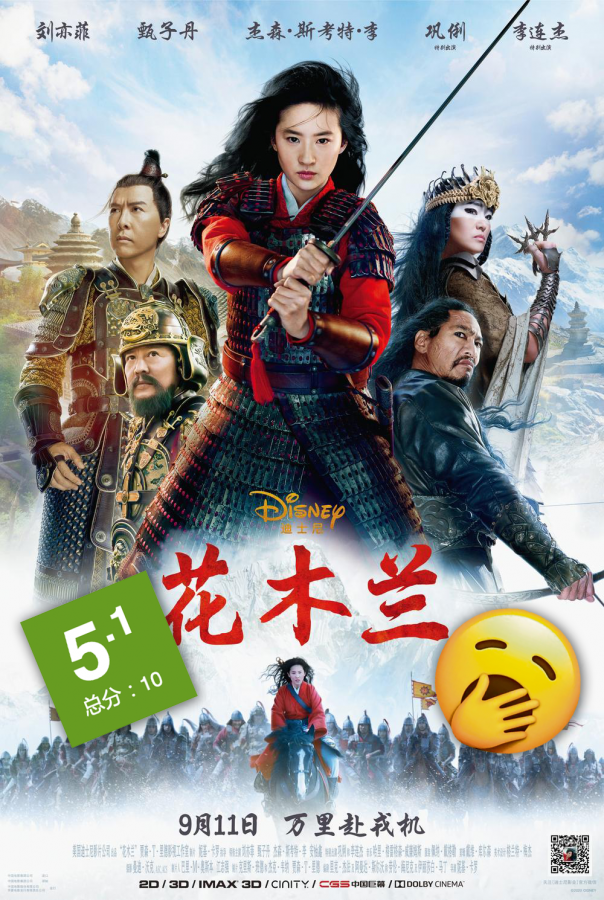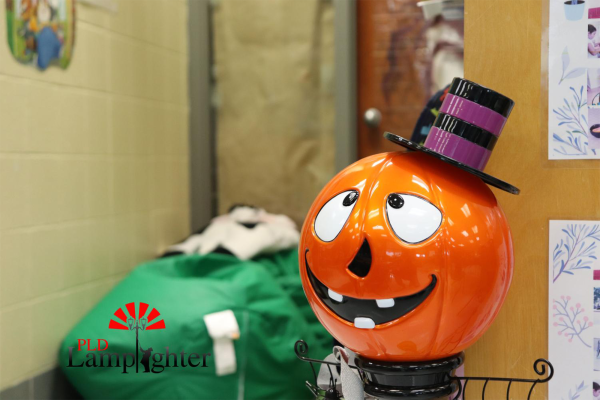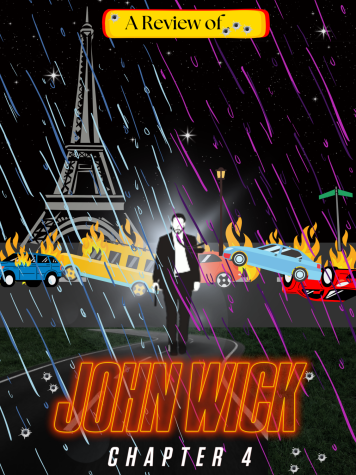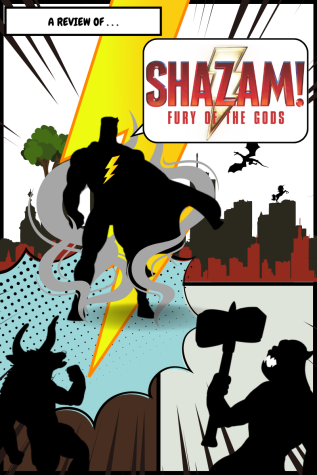Disappointed By Live-Action Mulan
Disney’s Mulan was supposed to be more mature. Instead, it was confusing and culturally inaccurate.
Chinese audiences hate the new Mulan film.
To be honest, I quite enjoy Disney live-action adaptations like Aladdin and Beauty and the Beast, the CGI Lion King and Jungle Book. Needless to say, the original animations will always hold first place in my heart, but I haven’t strongly disliked any of the live-action remakes that they’ve released.
Except for this one.
Without getting into the political drama that has arisen from the new live-action Mulan, the inaccurate cultural references along with the confusing editing left me feeling, quite frankly, annoyed.
From the trailer, it was easy to see that Disney was aiming for a more mature version of Mulan; however, many people were upset that characters like Mushu, Cricket and Shang were left out of the adaptation.
At the time, I was disappointed and sad to know these beloved characters would be gone, but I also believed the trade would be worth it. If Disney wanted to aim it at more mature audiences, it didn’t seem like such an awful idea to remove the cartoonish aspects.
Perhaps it would’ve been better if I had watched the movie with lower expectations, but the mistakes I caught ranged from minuscule to unbearable.
For instance, the women in the palace were shown casually strolling outside an imperial palace during a state meeting. No one and especially “court ladies,” was allowed to casually stroll or linger on the stairs of the palace on a daily and even more so when a war meeting was taking place.
Another issue is the women’s make-up which interprets elements of ancient Chinese culture as clownish. While the flower on the women’s’ foreheads, known as “Hua dian,” and the bright red lips are both accurate, the yellow is so bright with such a pale white that it looks overdone and ridiculous.
There were also bigger gaffes such as the movie’s use of the concept of “chi.”
In Chinese culture, chi is a vital force of anything that is alive. I can see why Disney directors would understand this concept as being something similar to “the force,” but in parts of the movie, the connection made no sense.
For example, after Mulan tries to confront the witch, she is told that not being true to herself weakens her chi. Commander Tung also brings this up while trying to give Mulan advice, but this was before he makes the connection that she’s a woman.
It was almost as if Disney wanted to link the concept with Mulan’s identity and therefore connected chi to the concept of truth,” but chi really has more of a connection to hard work.
I understand why they got some parts of Chinese culture and tradition wrong, but there’s really no excuse for lazy research or miscasting and therefore disrespecting, Chinese people.
But I get it. It’s not like cultural references haven’t been flouted in other movies, from the all-white cast in Netflix’s adaptation of popular manga Death Note to Scarlett Johansson taking the leading role in the original Japanese Ghost in the Shell.
Beyond all of the cultural inaccuracies, the action and the fight scenes were all over the place and made me feel dizzy at times. It was hard to understand what was going on and who was where. Not only that, but I found that the build-up to the “final boss fight” to be lacking because Mulan paused so many times when she was supposed to be running.
Although I’m happy to see Disney trying to change their approach and make a culturally diverse and entertaining film, I genuinely believe that the original was a much better representation of Chinese culture.
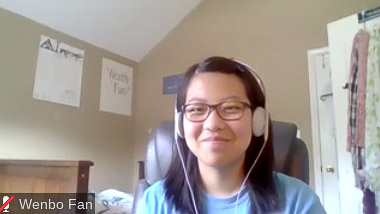
My name is Wenbo Fan and this is my fourth year on Lamplighter. Since starting Lamplighter freshman year, I’ve learned that journalism can change the...























